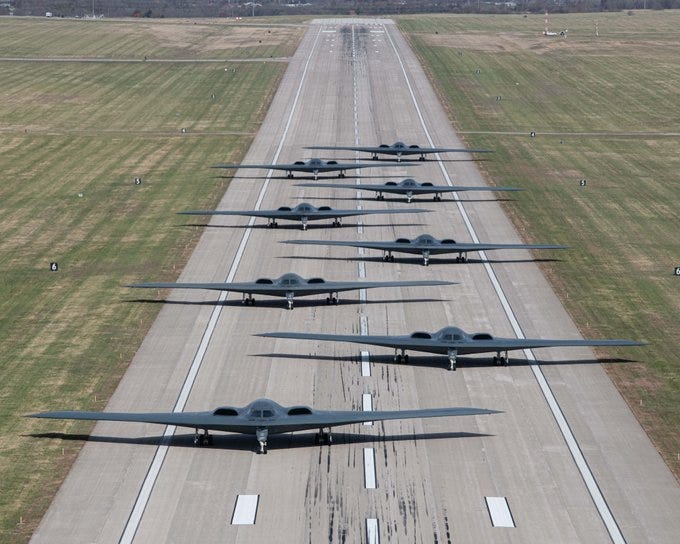Trump joins Netanyahu
Regime change war is inevitable
The USA launched strikes on Iran’s nuclear sites of Fordow, Natanz, and Isfahan at dawn local time on 22 June 2025. Trump then made a statement, in which he warned Iran not to retaliate, promising much larger strikes if it did.
No Talks
Iran’s dilemma is this: if it does not retaliate, it guarantees further attacks. And the USA may escalate further in support of Israel even if Iran limited its retaliation to Israel only. From Iran’s perspective, both retaliation and non-retaliation would eventually lead to a much larger American war aimed to remove the Islamic Revolution regime.
Talks also appear pointless: On 21 June, Trump gave Iran two weeks before deciding to strike, then he struck the next day. Trump’s team was set to negotiate with Iran on 15 June in Oman, but Israel went ahead and attacked on 13 June. Furthermore, from Iran’s perspective, Trump was engaged in talks, having been elected on the promise to end forever wars in the Middle East. He then got drawn by Israel into strikes on the nuclear programme. It stands to reason that Trump will be drawn in even further by Israel, regardless of what Iran does: showing weakness by not retaliating will be presented by the USA as an opportunity to escalate, while showing strength will be presented as a provocation requiring a response, and therefore escalation.
Indeed, statements from Trump, Hegseth, Vance, and others all point to America’s unwillingness to give Iran an honourable exit.
Risk to US bases
Crucially, Iran’s missile bases on the Persian Gulf are much closer to American bases and soldiers in the GCC and Iraq than are Iran’s missile bases in the west of the country to Israel, meaning that missiles can reach there faster. Furthermore, American bases are less protected than Israel - which benefits from American radars in Iraq, fighters in Jordan, and interceptors in Israel, the Red Sea and Mediterranean, are less protected than American bases in Iraq and the GCC. It is easier for Iran to impose costs on the USA than on Israel.
Commercial Implications:
Iran is bound to retaliate against the USA, after assessing the damage to its nuclear sites and communicating with Russia and China to gauge their support. Russia’s Dmitry Medvedev has already hinted at countries being willing to provide Iran with nuclear warheads.
Iran may have fissile materials stored in other locations that were not attacked. Moreover, it is not a given that the targeted sites were completely destroyed. Iran therefore may retain the option to build a nuclear weapon. This will require Special Forces operations to handle, which will be extremely risky, and may trigger even deeper American involvement.
The USA will gradually get drawn into a bigger and deeper war. From the IRGC’s perspective, since they cannot defeat the USA from the air and with missiles, their best bet is to draw the USA into a ground war.
The USA’s preferred option will be to use Special Forces, under heavy air cover, to lead ethnic insurgent groups from the Arab, Baloch, Kurdish, and perhaps Azeri communities. These may well be supplemented by jihadis from Syria’s Islamic State prison camps and foreign jihadi contingents.
This will trigger mass migrant and refugee flows, which may further break European politics.


